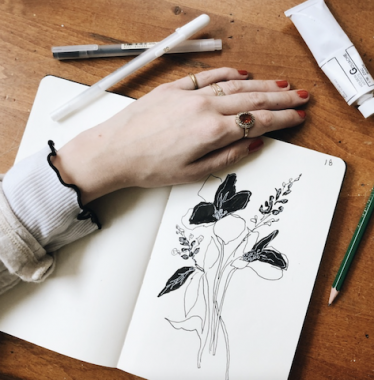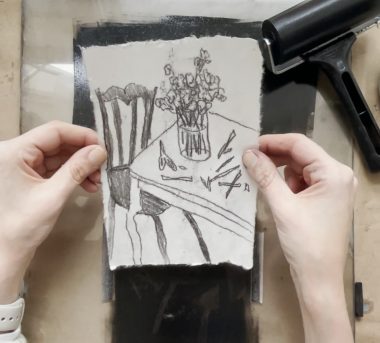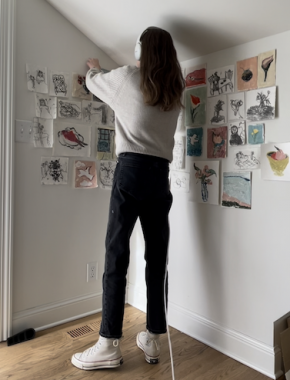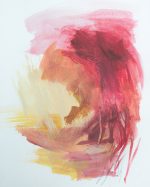Why I Participate in Inktober, a Monthlong Art Challenge
A columnist observes years of Octobers spent on daily creations
Written by |

“Anna’s an artist,” my mom explained to my nurse on my behalf, during those months when I didn’t have a voice myself.
“Oh, that’s awesome!” he exclaimed. “Do you do Inktober?”
I shook my head no, and the conversation fizzled.
I’m not sure why this exchange stuck with me following the eight-month hospitalization that accompanied my heart-lung transplant for pulmonary hypertension. At the time, I’d heard of Inktober, but I didn’t know much about it.
During those months, art was far from my mind. Following my surgery, it was probably five months before my weak and shaky hands even attempted to pick up a pen, and another two months before I had the motor control to produce anything remotely legible.
I was discharged and went home in April 2019, and in the following months, I approached art nervously, uncertain of whether it would ever come back to me the way I’d known it before. When fall rolled around, this brief conversation from almost a year before rattled in my head. Soon, I found myself diving deep into YouTube videos shared by Inktober participants of years past.
Inktober is a monthlong art challenge that runs for the 31 days of October. Upon its inception in 2009, the Inktober goal was for participants to create one ink illustration a day based on a prompt list and to share the results on social media. The entire concept is steeped in commitment and camaraderie.
It’s since grown into a much broader project within the entire art community, with a reach that extends far past ink illustrators. Painters, printmakers, and other creative subsets have adapted the challenge to their specific mediums. What it all boils down to nowadays is one goal: In October, make art every day, and share the experience with other artists.
Once I knew more about this challenge, I had to give it a try. If anything, I felt it’d be a way to honor how far I’d come since that day in the hospital, when my trach and ventilator support prevented me from even talking about art with my nurse.

One of Anna’s first Inktober creations in 2019. (Courtesy of Anna Jeter)
Now, I’m in my last week of Inktober (or “Artober” or “Printober” or whatever you want to call it). This is my fourth year participating, and it’s brought me just as much joy this year as it did in 2019.

A trace monotype by Anna, completed for Inktober 2022. (Courtesy of Anna Jeter)
Over the four years, my art has evolved notably. Now, instead of just doing ink illustrations, I work with a large number of mediums, including oil paint, relief ink, charcoal, and printmaking. My world of art has had time to expand more than I ever thought possible, another reason to be grateful for my transplant and the ways in which it was able to extend my life.
My enthusiasm and commitment can sometimes feel silly when talking about this challenge with others. But outside of hyped-up aspects on social media, Inktober truly has become a grounding ritual for me. While I’m often reminded of my body’s limits, this annual October challenge creates a daily rhythm of gratitude for all that I’m still able to pursue, which includes the things I love most: art and writing.
More than anything, this month I’ve found many reminders that I’ve come so far in art and life since that one-sided conversation four years ago. While these years have been filled with a great deal of grief and loss, I still find so much profound hope in the creativity that has come back to life within me.

In her art studio, Anna hangs up all of her works so far from this year’s Inktober. (Courtesy of Anna Jeter)
Note: Pulmonary Hypertension News is strictly a news and information website about the disease. It does not provide medical advice, diagnosis, or treatment. This content is not intended to be a substitute for professional medical advice, diagnosis, or treatment. Always seek the advice of your physician or other qualified health provider with any questions you may have regarding a medical condition. Never disregard professional medical advice or delay in seeking it because of something you have read on this website. The opinions expressed in this column are not those of Pulmonary Hypertension News or its parent company, Bionews, and are intended to spark discussion about issues pertaining to pulmonary hypertension.





Leave a comment
Fill in the required fields to post. Your email address will not be published.